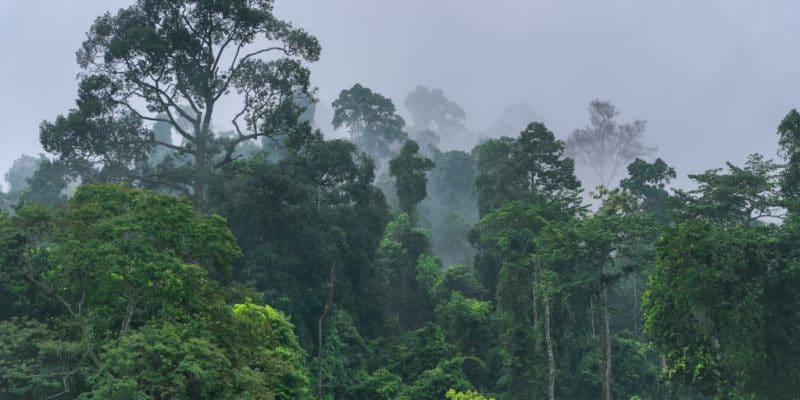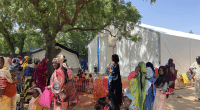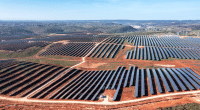The African Forestry Forum (AFF) is working on an academic training guide for forest protection in Africa. The book, which will be published in French and English, aims to improve knowledge of the impacts of climate change on forests in many universities and technical institutions in Africa.
The carbon market, the weather, the scientific debate on climate change, all topics addressed in the future academic training guide being developed by the African Forestry Forum (AFF).
Developed in collaboration with the Sokoine University of Agriculture in Tanzania, the new academic training guide, whose modules will soon be presented to students and forestry experts in contact with communities, is divided into several themes, including the fight against climate change and reducing its impact on forests.
By having such a manual, AFF provides its decision-makers with a manual to improve knowledge on ecosystems, their composition and their vulnerability to ongoing changes, said Godwin Kowero, secretary general of AFF.
Read also-CENTRAL AFRICA: States join forces to promote forest conservation
AFF is an association committed to the sustainable management, wise use and conservation of forest and tree resources in Africa. The organization intends to strengthen the capacities of forest management actors at a time when the safeguarding of forests is necessary to slow the effects of global warming.
Alarming figures for the continent
Every year, 4 million hectares of forest disappear and this costs the continent a loss of 3% of its gross domestic product (GDP), according to Abebe Haile-Gabriel, the regional representative of the United Nations Food and Agriculture Organization (FAO) for Africa. According to him, 65% of productive land is degraded, while desertification affects 45% of land in Africa. This further intensifies the effects of climate change.
Between 2000 and 2020, Ivory Coast, Guinea and Ghana have lost 71%, 67% and 60% of their tropical rainforests respectively, according to the FAO. In these three West African countries, the restoration of degraded land is hampered by several factors such as conversion and clearing of forests, overexploitation of natural resources, urbanization and drought.
The urgency of restoring degraded lands
With a view to restoring ecosystems, FAO’s Action Against Desertification program, which supports the Great Green Wall initiative, is working with local communities, governments and civil society to restore degraded lands in Ethiopia, Gambia and Sudan. Between 2015 and 2020, 63,000 hectares of degraded land were planted to begin restoration with 12 million seedlings and forest seeds, according to FAO.
Read also-AFRICA: Creation of a business forum for sustainable forestry
In 2021, the Critical Ecosystem Partnership Fund (CEPF) has issued a new call for applications for the sustainable management of Guinean forests in West Africa. For example, the forests of Liberia (which occupy about 43% of the Upper Guinea Forest) represent a significant portion of the remaining forest cover in the Guinean Forests of West Africa hotspot. However, the threats to these forests are numerous and destructive.
Benoit-Ivan Wansi







